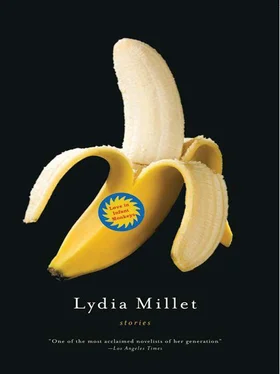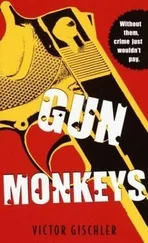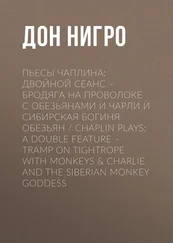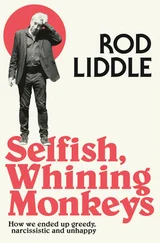The owner traveled constantly, often in Europe, Asia or South America. All over. He was a performer of some kind, in show business. When he was in town he spent most of his time at the gym, maintaining his physique, tanning, shopping or seeking photo opportunities. The dogwalker barely registered him. The dogwalker went to get Sir Henry three times a day, rain or shine. Henry seldom went out otherwise — the odd trip with one of the girls when they were home from school, or the wife on the rare occasion when she was not, like the entertainer, at the gym or shopping. Now and then, if he found himself at loose ends for twenty minutes or so, the entertainer paraded with Sir Henry personally, scoping the park for other celebs to do the meet and greet with. In the puppy days he had taken Sir Henry out frequently, but the puppy days had passed.
There was an older dachshund, Precious, also owned by the entertainer, but Precious had been virtually adopted by one of the domestics, an illegal from Haiti if the dogwalker was not mistaken. The Haitian took Precious out on her cigarette breaks. But not Sir Henry.
The dogwalker walked Sir Henry alone or with one particular other dog, a small poodle belonging to a dying violinist. The poodle was stately, subtle and, like the dachshund, possessed of a poise that elevated it beyond its miniature stature. The two seemed to have an understanding. The poodle marked first and with great discretion; the dachshund marked second. They trotted happily beside each other at an identical pace, despite the fact that the poodle’s legs were almost twice as long. They listened to the dogwalker acutely and responded promptly to his commands. It was their pleasure to serve.
Did they serve him? No, and he would not have it so. They served decorum, the order of things.
At times the dogwalker enjoyed resting with them; he would settle down on a park bench and the dogs would sit at his feet, paws together neatly, looking forward with an appearance of vigilance. Their heads turned in unison as other dogs passed.
When it was morning, noon and night, of course, as it was with Sir Henry, it was no longer merely walking. The dogwalker was in loco parentis. It was he who had discovered the bladder infection, the flea eggs. It was he who had recommended a vet, a diet, routine. In the economy of dogwalkers he was top tier; only the exceptionally wealthy could afford him, those who did not even notice that their dogwalking fees exceeded rents in Brooklyn. His personal service included a commitment of the heart, for which the megarich were willing to pay through the nose. About his special charges he was not workmanlike in the least. He was professional, operating by a mature code with set rules for all of his employees, but he was not slick. He did not cultivate in himself the distancing practiced by pediatric oncologists and emergency-room surgeons. His clients sensed this, and where their pets were concerned, his fond touch soothed the conscience.
He began with respect and often ended with love. When a dog was taken from him — a move, a change of fortune or, in one painful case, a spontaneous gifting — he felt it deeply. His concern for a lost dog, as he thought of them, would keep him up for many nights after one of these incidents. When a young Weimaraner was lost to him with not even a chance to say good-bye, he remained deeply angry for weeks. The owner, a teenage heiress often featured in the local tabloids, had given his charge away on the spur of the moment to a Senegalese dancer she met at a restaurant. He had no doubt that drug use was involved. The dog, a timid, damaged animal of great gentleness and forbearance, was on a plane to Africa by the time he found out about it the next day.
The loss was hard for him. He was tormented by thoughts of the sweet-natured bitch cowering, subjected to the whims of an unkind owner or succumbing to malnutrition. Of course, there was a chance the new owner was thoughtful, attentive, nurturing — but he had no reason to expect such a happy outcome. In his work he saw shockingly few people who were fit for their dogs.
Walking Sir Henry and the poodle up Cherry Hill, he remembered the Weimaraner, and a pang of grief and regret glanced through him. It had been almost three years ago; where was the good creature now? He had looked up Senegal on the Internet after she was taken. “Senegal is a mainly low-lying country, with a semidesert area to the north. .” He had never been to Africa, and in his mind the Weimaraner lived alternately in the squalor of dusty famine, scrabbling for scraps of food among fly-eyed hungry children, or in the cool white majesty of minarets. There were obdurate camels and palm trees near the Weimaraner, or there were UN cargo planes dropping crates of rice.
In less colorful moments, he was quietly certain the Weimaraner was dead. The incident had taught him a valuable lesson, one he firmly believed he should have learned earlier: In the client-selection process, people must be subjected to far greater scrutiny than their dogs. He no longer contracted with unreliable owners. If he had reason to suspect an owner or family was not prepared to keep a dog for its lifetime, he did not take the job.
It could be difficult. Sometimes a dog owned by one of these irresponsible persons had powerful appeal — grace, sensitivity, an air of loneliness. But the risk was too great. He made himself walk away from these dogs.
Sir Henry emitted one short bark and he and the poodle stopped and stood, tails wagging, pointing to the left. The dogwalker stopped too. There was the violinist, wrapped in blankets, seated under a tree in his wheelchair with his attendant and an oxygen tank. The dogwalker was surprised. As far as he knew, the violinist, who was at the end stage of a long cancer, never came out of his penthouse anymore. The place had a large wraparound terrace from which the East River could be seen; there were potted trees and even a small lawn on this terrace, where the poodle spent much of its time.
“Blackie,” said the violinist in his weak, rasping voice, and the dogwalker obediently let the two dogs approach.
“A surprise,” said the dogwalker. He was not skilled at small talk.
“Figured I should take one last stroll in the park,” said the violinist, and smiled. “Come here, Blackie.”
The dogwalker handed the poodle’s leash to the attendant and Blackie jumped up into his owner’s lap. The old man winced but petted the poodle with a bone-stiff hand.
“I need to know what will happen to her,” said the violinist. “When I die.”
The dogwalker felt embarrassed. Death was an intimate subject. Yet it was close, and the violinist was quite right to plan for his dog.
“Difficult,” he offered.
“I wonder if, if I were to establish a trust. . ample provisions, financially. . would you consider—?”
The dogwalker, surprised again, looked to the attendant who was holding the leash. She had a beseeching look on her face, and for a minute he did not know how to take this. Finally he decided the look meant the violinist would not be able to bear a flat-out refusal.
“Let me think,” he said, stalling.
It was not in his code.
“Think fast,” said the violinist, though he was still smiling.
“I will think about it overnight,” said the dogwalker.
“You like Blackie,” said the violinist, a quaver in his voice. “Right? Don’t you like her?”
The dogwalker felt a terrible pity enfold him.
“Of course I do,” he said quickly. “She is among my favorites.”
The violinist, on the brink of tears, bent his head to his dog, petting her softly and rapidly as she patiently withstood the onslaught. His attendant shaded her own eyes and blinked into the distance.
“I am very attached to Blackie,” the dogwalker bumbled on. “But the adoption of dogs is against my policy. Please give me till tomorrow.”
Читать дальше












